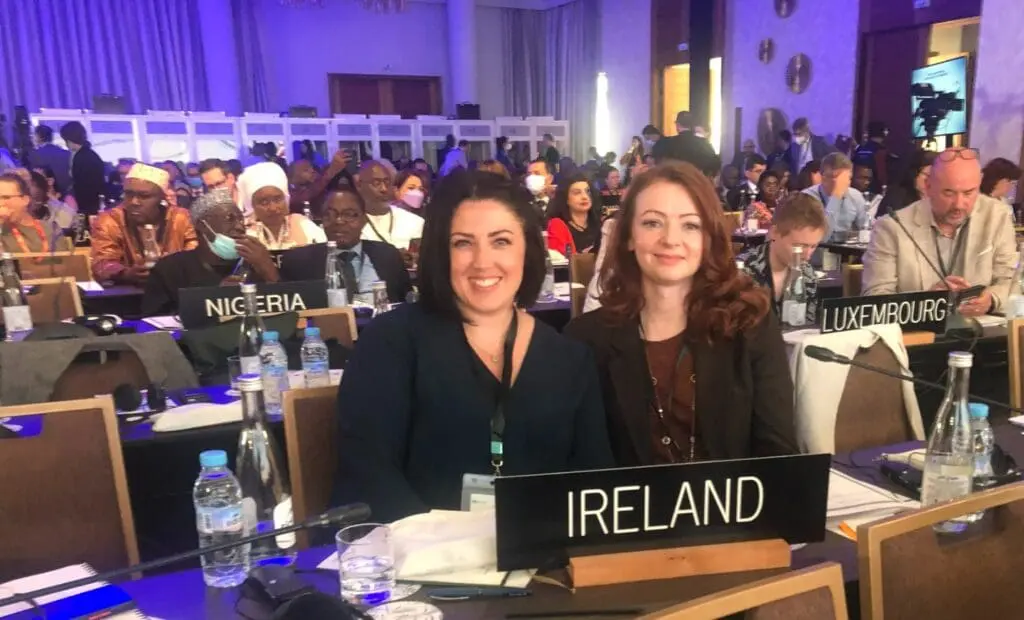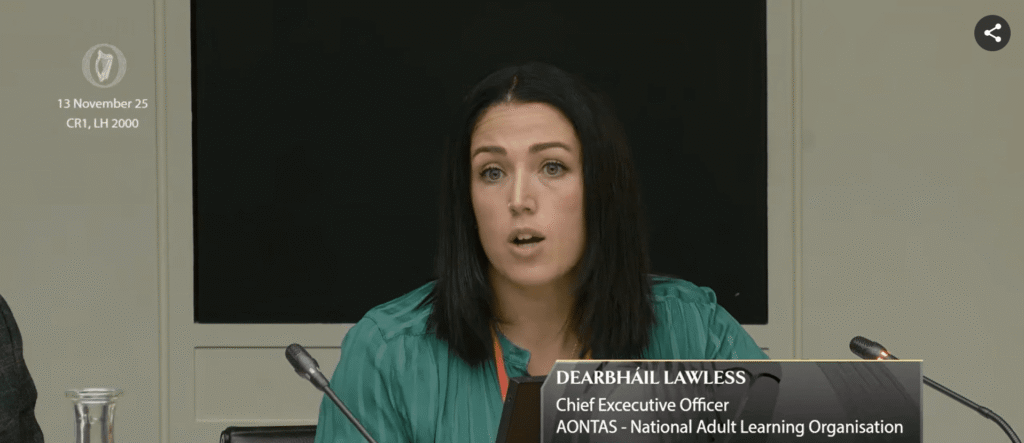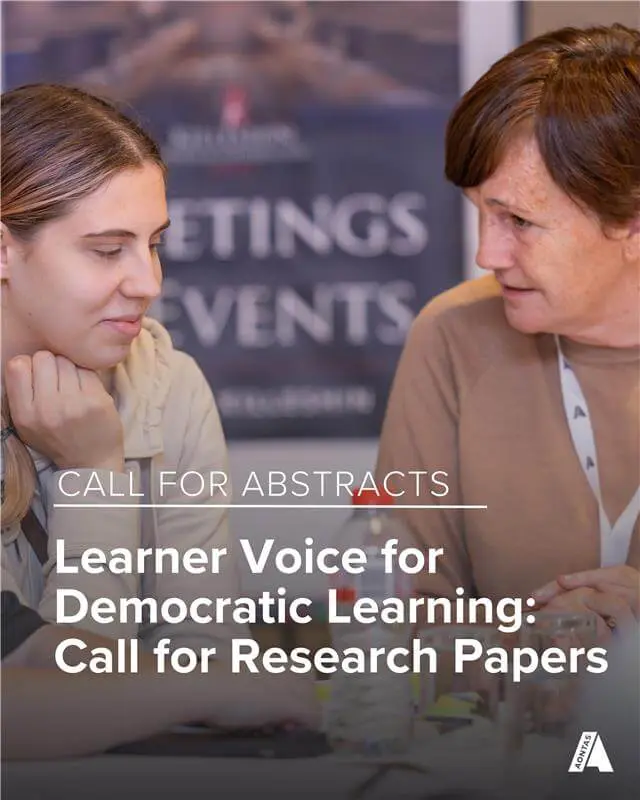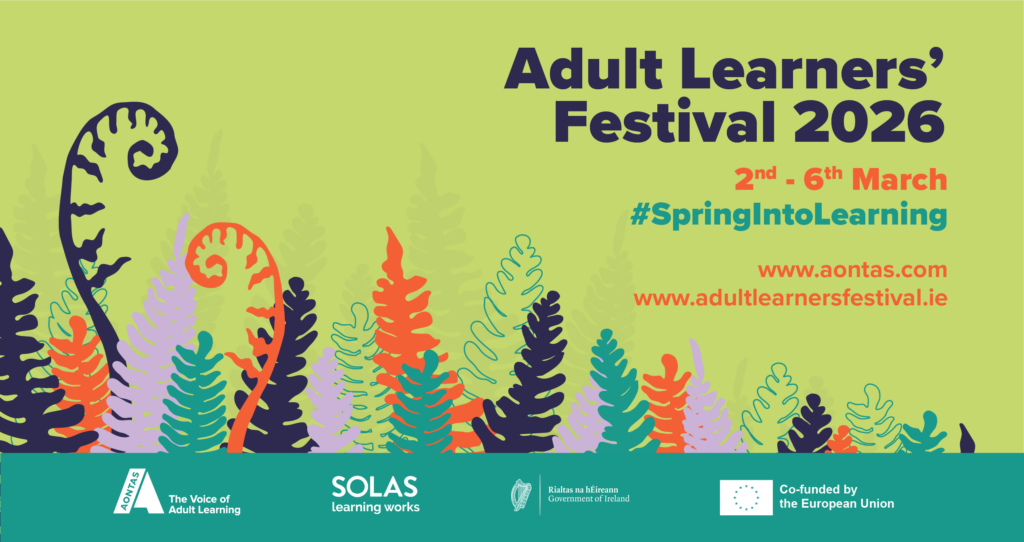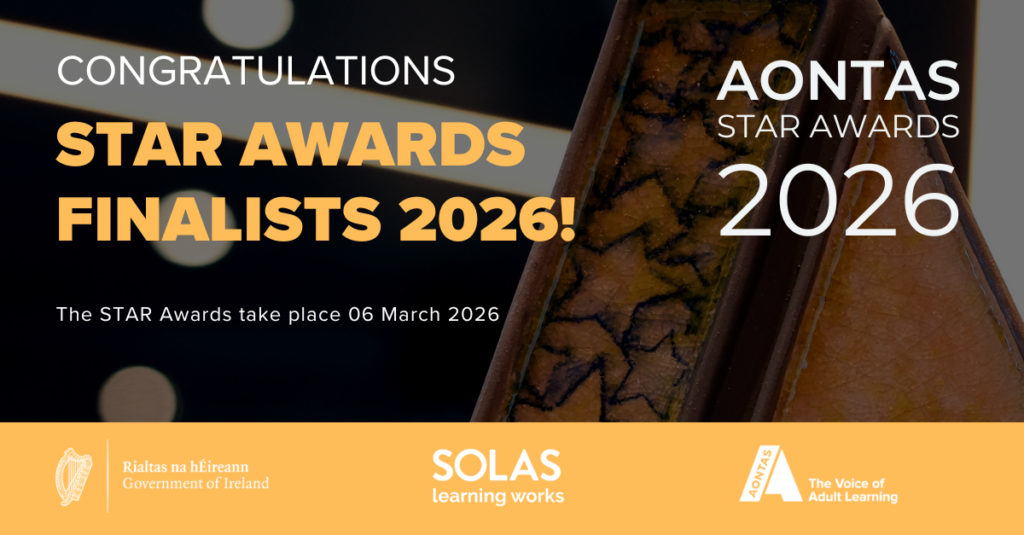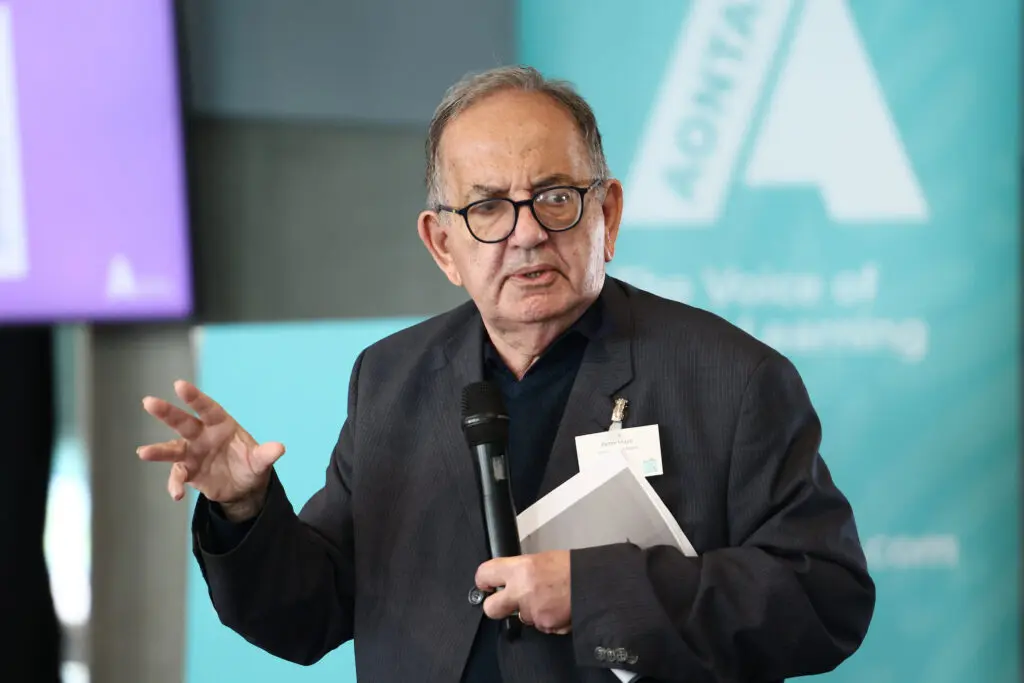AONTAS successfully advocates for the prioritisation of community education and Learner Voice in a new framework that will guide adult learning initiatives and policies across the world.
The new Marrakesh Framework for Action was adopted today at the UNESCO International Conference on Adult Education (CONFINTEA VII), which has been ongoing this week in Marrakesh, Morocco.
This conference, which has taken place every decade since the 1940s, recognises the central role of lifelong learning in addressing global issues and challenges, and the need for action in order to make education possible and accessible for all. It specifically looks at lifelong learning and the UN Sustainable Development Goals (SDGs), with the climate crisis and sustainability recognised as one of the most pressing challenges we face.
 AONTAS was delegated by the Irish State, through the Department of Further and Higher Education, Research, Innovation and Science, to represent Ireland at the conference, a rare position for an NGO.
AONTAS was delegated by the Irish State, through the Department of Further and Higher Education, Research, Innovation and Science, to represent Ireland at the conference, a rare position for an NGO.
Dr Niamh O’Reilly (AONTAS CEO) and Dearbháil Lawless (Head of Advocacy) represented the values and concerns of the Irish adult education system and our members, and advocated for the global adult learning community with the EAEA and ICAE.
Key Advocacy Outcomes
Following on from the Belém Framework from 2009, the new Marrakesh Framework for Action actually names community education as a “key field of learning”, along with literacy and basic skills, and continuing education and vocational skills.
The framework also recognises the importance of “supporting and (co)funding training and learning initiatives such as community learning centres to be well-resourced with qualified adult educators.”
It recognises the need to reinforce “institutional capacities for promoting lifelong learning for all at the local level by, for example, encouraging learning city development, as well as fostering the involvement of local stakeholders, including learners, community groups and institutions.”
The new framework stresses “the key role of teachers and educations, including volunteer tutors and other professionals engaged in adult learning and education,” and the need to improve “their working conditions, including their salaries, status and professional development trajectories.”
The framework commits to an increase in public funding and more resources for adult learning and education, including targeted measures for women and learners from vulnerable or marginalized groups.”
It also commits to expanding participation in lifelong learning, and “to include vulnerable populations and adults currently unreached, we commit to promoting outreach and guidance systems to raise awareness of learning opportunities, expand participation and enhance learner motivation.”
At CONFINTEA VII
All participants at the conference, including Dr Niamh O’Reilly and Dearbháil Lawless from AONTAS, worked together to review current policies and practices in adult learning across the world, examine challenges and best practices, and decide on a set of recommendations to improve and sustain adult learning into the future.
The result is the UNESCO CONFINTEA VII Marrakech Framework for Action, a global roadmap for adult learning for the next decade.
Community Education
AONTAS’s primary goal in this advocacy work for CONFINTEA VII and the new Framework was to advocate for more support and policies to address systemic inequalities in lifelong learning, and to build relationships and raise the profile of the Irish adult and community education system to an international audience.
One major goal was to advocate for the importance of non-formal community education (as opposed to education for employment or skills only). Dr O’Reilly raised the need for sustainable funding for community education and learning at the Financing Workshop at CONFINTEA.
Learner Voice
Another core objective was to highlight the power of learners to advocate for themselves and other learners through the process of Learner Voice, in which Ireland is a global leader. Indeed, the AONTAS National Further Education and Training (FET) Learner Forum was a key example given at the main plenary session by Timothy Ireland from ICAE.
Advocacy before and during CONFINTEA VII
One of the main goals of advocacy work is for specific needs to be addressed through policy and structural changes. This kind of work takes place not just at the CONFINTEA conference in Morocco during the past week, but over the months—and years—beforehand.
AONTAS attended the last CONFINTEA conference in 2009 and since then we have continued to build relationships and raise awareness of the key challenges in adult learning.
Contributing to the Draft Marrakesh Framework
 Earlier this year, in answer to a public online consultation on the draft Marrakesh Framework, Dr O’Reilly called for emphasis on systemic inequalities in lifelong learning and highlighted the broader purpose learning (for holistic and community development, not just for employment or skills), as well as learners’ ability to shape policy and education provision.
Earlier this year, in answer to a public online consultation on the draft Marrakesh Framework, Dr O’Reilly called for emphasis on systemic inequalities in lifelong learning and highlighted the broader purpose learning (for holistic and community development, not just for employment or skills), as well as learners’ ability to shape policy and education provision.
The draft Framework recognises “the importance of strengthening ALE (Adult Learning and Education) at the local level and for supporting and co-funding training and learning initiatives such as community learning centres.”
The draft Framework noted the importance of community learning and education, and at the conference in Marrakesh this week Dr O’Reilly and Ms Lawless further advocated the need to include the process of Learner Voice in planning, designing and implementing ALE policies and programmes, for a stronger commitment to ALE financing, including combining targeted funding for vulnerable or marginalized groups of learners.
They also called for an expansion of efforts to implement literacy policies, and for stronger support for ALE teachers and educators in order to ensure equality. These points are all reflected in the new Marrakesh Framework.
“The new UNESCO Marrakesh Framework for Action harnesses a holistic understanding of lifelong learning and a recognition of education as a common good” – Dr Niamh O’Reilly, AONTAS CEO
Read the new Framework here and click here to learn more about CONFINTEA VII.
Click here to read about the National FET Learner Forum and Learner Voice.
If you are interested in becoming a member of AONTAS and being part of our advocacy for educational equality, click here for more.
